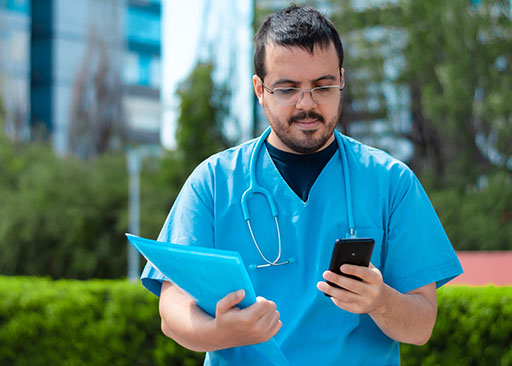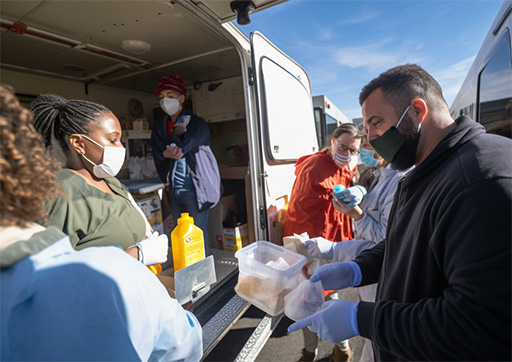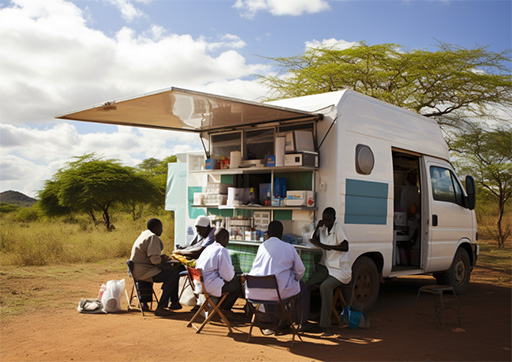What Is A Mobile Clinic, And What Does It Do?

In addition, mobile clinics can help patients with chronic illnesses find the support they may not be able to access in their local community. They also provide a vital service for low-income families who might otherwise struggle to afford medical care.
Mobile Clinic Services
The clinic provides patient-centered care, including screenings and plans for common illnesses like diabetes and heart issues. Patients can also receive referrals to specialists and other medical assistant in the community. In addition, the clinic offers a variety of health and wellness services, including physical exams, nutrition counseling, and mental health screenings.
What About Prescriptions?
Patients in the mobile clinic typically obtain the medication prescribed by the clinic through one of two methods: they may pick up prescriptions from a pharmacist on-site or have them delivered to their home. In either case, patients can be confident that the medications they receive are of high quality and safe.
The mobile clinic provides a convenient and cost-effective way for patients to receive the medications they need, whether that’s for acute conditions like an illness or injury, or long-term care.
Advantages Of Mobile Clinics
Mobile health clinics offer patients with limited mobility access to quality healthcare services. Clinics can be located in a patient’s home or transported to remote areas where patients may not have easy access to other medical care. The clinic is designed to be accessible to everyone in need, regardless of location or income.
Patients at mobile health clinics typically receive more comprehensive care than patients who visit traditional healthcare facilities. This is because mobile health clinics are staffed with nurses and doctors who are specially trained in providing patient care through technology such as telemedicine and electronic medical records. Patients can also receive assistance with basic needs like food, water, and immunizations.

Disadvantages Of Mobile Medical Clinics
Mobile medical clinics have several disadvantages. First, patients may not always be able to visit a clinic when they need to due to work or other commitments. Second, the clinics are often located in areas with limited transportation options, making it difficult for patients to get there.
Third, mobile clinics may not always have the same equipment and expertise as traditional medical facilities, so patients may receive poorer care in crisis situations than they would at a stationary clinic. Finally, mobile clinics do not typically accept health insurance plans, so some people who can afford care elsewhere cannot use them.
Convenient Locations
A mobile clinic should be located in a location with easy access to patients and adequate parking. The clinic should also have good communication and infrastructure so patients can get to the clinic quickly.
In addition, the clinic should be located in a populated area so that patients can find it easily. The clinic should also have good public transportation so that patients who cannot get to the clinic on foot can still get care.
Partnering With The Community
Mobile health clinics partner with various organizations to provide patients with access to care. These partners include patient advocacy groups, hospitals, and pharmacies.
Patient advocacy groups work to improve patient care by lobbying for legislation and advocating on patients’ behalf. These groups can provide patients with information about free health care services and help them connect with doctors who share their specific concerns.
Grassroots Marketing
Mobile medical clinics use grassroots marketing to reach patients. The clinics place flyers in local businesses and post notices on community bulletin boards, attracting patients with limited healthcare access.
Patients can also receive information about the clinic through text messages, emails, or social media. As a result, mobile medical clinics have increased patient access to healthcare and improved the quality of care for patients with limited resources.
Financing A Mobile Health Clinic

Mobile clinics offer a valuable service to patients who cannot access public health care in their local area. By providing mobile clinics with the necessary health resources, governments can promote healthy living and reduce the number of people who are unable to afford quality medical care.
Why Mobile Clinics Use BioScan
BioScan is integral to providing patient care, as it can help doctors identify potential health problems and prescribe the best course of action for a patient’s situation. Using BioScan in mobile clinics allows patients to receive quality medical care without traveling long distances.
